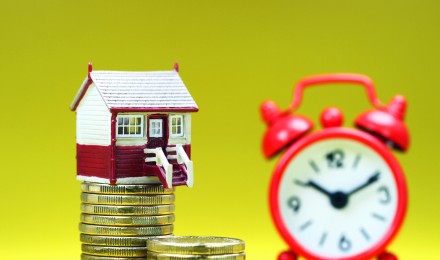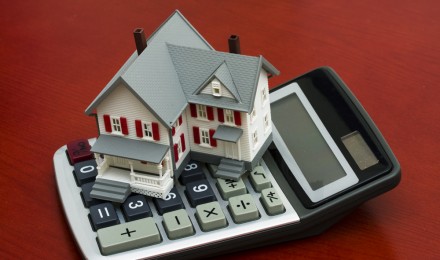Getting the best deal for your new home mortgage, and one that you will be happy with, will require that some kind of plan be made. Without it, steps are apt to be overlooked, and the cost could end up being a lot greater than necessary. Having a first home mortgage plan will also help you reduce stress and continue to move forward safely and wisely.
Get Your Finances in Order
Before you just launch out into the deep end without any clue of what you can buy or afford, it is a good idea to start by looking over the current state of your finances. Several things will enable you to get a larger first home mortgage and better rates such as having a good credit score, little debt (less than 20 percent of available credit), and having at least 20 percent of a down payment on the new home.
Creditors love to see people with these things, and it will be worth waiting a little while to correct any deficiencies in these areas first. The US Department of Housing and Urban Development says that it may be worth it to make wise changes in your spending habits, too, because better money management will have an impact on your future options. If you do not have a 20 percent down payment, you will most likely be required to buy Private Mortgage Insurance (PMI), which will make your payment even larger. Naturally, the less you have to borrow, the less you will pay in interest over the course of your first home mortgage.
Decide on Your Goals for the New Home
How long you intend to live in your new home can definitely affect your options when it comes to getting a first mortgage. It could also affect the type of first home loan you should get. For instance, if you are planning to live in the new home for the rest of your life, then a fixed rate 30-year mortgage is probably your best deal. On the other hand, if you only want to stay in it for three to seven years, then it would be a better move to get an adjustable rate mortgage with a fixed rate upfront for that number of years. These mortgages usually have lower interest during the fixed rate time, but will afterwards rise considerably to fully amortize the loan in the remaining time.
Determine Your First Home Mortgage Price Range
Once your credit is improved and debt reduced, you can determine how much of a monthly payment you can afford. Be sure to allow for the possibility of paying the home loan off early – without a penalty. Making extra payments each year can also greatly reduce your overall costs, reports the New York Times.
Shop Around for Your First Home Mortgage
There are many different options available for future home owners when it comes to sources needed to obtain a home loan. Every lender will have a slightly different offer, and the flexibility of one may make it a little more ideal for your needs than another one. This makes it very important to get several offers before making a final decision.
Apart from your local bank, you may also want to consider Veterans Loans, the Federal Housing Administration (FHA), an Energy Efficient Mortgage, or Rural Americans Housing Assistance. Taking some time to find the ideal first home mortgage will save you money and enable you to be more satisfied once you have the right one.
Other local programs are also available through various home buying programs in your state. The Good Neighbor Next Door program enables law enforcement officers, pre-kindergarten through 12th grade teachers, firefighters and EMT’s the opportunity to get homes at 50 percent off listed price – if they agree to live in it for at least 36 months, says USA.gov.
Getting the best deal for your new home mortgage, and one that you will be happy with, will require that some kind of plan be made. Without it, steps are apt to be overlooked, and the cost could end up being a lot greater than necessary. Having a first home mortgage plan will also help you reduce stress and continue to move forward safely and wisely.
Get Your Finances in Order
Before you just launch out into the deep end without any clue of what you can buy or afford, it is a good idea to start by looking over the current state of your finances. Several things will enable you to get a larger first home mortgage and better rates such as having a good credit score, little debt (less than 20 percent of available credit), and having at least 20 percent of a down payment on the new home.
Creditors love to see people with these things, and it will be worth waiting a little while to correct any deficiencies in these areas first. The US Department of Housing and Urban Development says that it may be worth it to make wise changes in your spending habits, too, because better money management will have an impact on your future options. If you do not have a 20 percent down payment, you will most likely be required to buy Private Mortgage Insurance (PMI), which will make your payment even larger. Naturally, the less you have to borrow, the less you will pay in interest over the course of your first home mortgage.
Decide on Your Goals for the New Home
How long you intend to live in your new home can definitely affect your options when it comes to getting a first mortgage. It could also affect the type of first home loan you should get. For instance, if you are planning to live in the new home for the rest of your life, then a fixed rate 30-year mortgage is probably your best deal. On the other hand, if you only want to stay in it for three to seven years, then it would be a better move to get an adjustable rate mortgage with a fixed rate upfront for that number of years. These mortgages usually have lower interest during the fixed rate time, but will afterwards rise considerably to fully amortize the loan in the remaining time.
Determine Your First Home Mortgage Price Range
Once your credit is improved and debt reduced, you can determine how much of a monthly payment you can afford. Be sure to allow for the possibility of paying the home loan off early – without a penalty. Making extra payments each year can also greatly reduce your overall costs, reports the New York Times.
Shop Around for Your First Home Mortgage
There are many different options available for future home owners when it comes to sources needed to obtain a home loan. Every lender will have a slightly different offer, and the flexibility of one may make it a little more ideal for your needs than another one. This makes it very important to get several offers before making a final decision.
Apart from your local bank, you may also want to consider Veterans Loans, the Federal Housing Administration (FHA), an Energy Efficient Mortgage, or Rural Americans Housing Assistance. Taking some time to find the ideal first home mortgage will save you money and enable you to be more satisfied once you have the right one.
Other local programs are also available through various home buying programs in your state. The Good Neighbor Next Door program enables law enforcement officers, pre-kindergarten through 12th grade teachers, firefighters and EMT’s the opportunity to get homes at 50 percent off listed price – if they agree to live in it for at least 36 months, says USA.gov.







